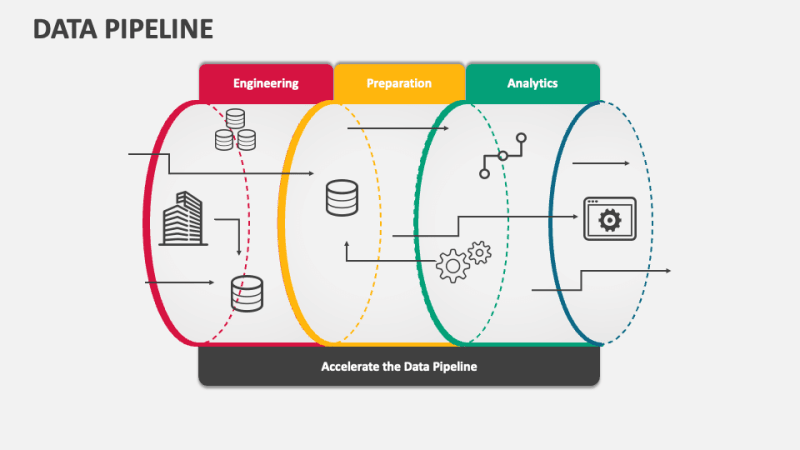A step-by-step guide for Data Engineering beginners
Introduction
In order to build a successful data engineering career and profession, it is important to understand what it entails as well as what it takes to be a data engineer.
In 2006, the British mathematician, Clive Humby declared that “data is the new oil”. The mathematics genius was right as he meant that data, just crude like oil, isn't useful in its raw state. It needs to be refined, processed and turned into something useful since its value lies in its potential. Sure enough, it is only refined oil that is able to run the world and so is data in the current world.
Data engineering is the process of building and designing systems that to help people and entities collect and analyze raw data from various sources and formats. These systems are instrumental in helping them manipulate data for use by businesses to make critical decisions.
Data engineers design, build, and optimize systems for data collection, storage, access, and analytics at scale. They come before data scientist who need these pipelines to convert raw data into usable formats either through data-centric applications or by other data consumers.
In this article, I have explored my data engineering learning path to help me build my profession in a seamless manner.
Understanding the key roles and responsibilities for Data Engineer jobs
- Creating and maintaining optimal data pipeline architecture.
- Building analytics tools that utilize the data pipeline to provide actionable insights into customer acquisition, operational efficiency and other key business performance metrics.
- Identifying, designing, and implementing internal process improvements: automating manual processes, optimizing data delivery, re-designing infrastructure for greater scalability, etc.
- Assembling large, complex data sets that meet functional / non-functional business requirements.
- Building the infrastructure required for optimal extraction, transformation, and loading of data from a wide variety of data sources using SQL and other ‘big data’ technologies.
- Monitoring and troubleshooting data systems and pipelines, ensuring that they are reliable, secure, and scalable, and resolving any issues or errors that may occur.
- Creating data tools for analytics and data scientist team members that assist them in building and optimizing product into an innovative industry leader.
- Collaborating and communicating with other data professionals, such as data scientists, data analysts, data architects, etc., to understand the data needs and provide the data solutions.
Skills and tools needed to build strong data engineering career.
To become a data engineer, I will need to have a strong background in;
a. Computer science,
b. Mathematics, and
c. Statistics
.
Technical skills and tools that I need to equip myself with include;
Programming languages: To be used for data manipulation, analysis, and automation. Python, Java, Scala, etc
Databases: To store and query structured, semi-structured, or unstructured data.
SQL, NoSQL, or graph databases, that can.
Cloud computing. For scalable and cost-effective data storage services.
AWS, Azure, or Google Cloud,
Data warehouse platforms. To provide data warehousing and analytics capabilities. Snowflake, Redshift, or BigQuery.
Big-Data tools. To handle distributed and parallel data processing and streaming. Hadoop, Spark, MapReduce, Kafka, etc.
Data visualization tools. To create interactive and informative data dashboards and reports. Tableau, Power BI, or Dash
Orchestration tools. To orchestrate and schedule data pipelines and workflows. Airflow, Luigi, or Prefect
Real-world Projects
Real-world projects are an excellent way for me to apply my skills and gain practical experience. I intend to join Hackathons and Competitions, data engineering forums and communities like Stack Overflow, Reddit's r/dataengineering, LinkedIn groups, and Data Engineering Club etc. These will not only help me build a strong portfolio but also deepen my understanding of data engineering concepts. When working on these projects, I will focus on best practices in data engineering, data quality, scalability, and automation. I will strive to document my projects and endeavor to share my work on platforms like GitHub, Dev.to, medium.com etc. to showcase my skills to potential employers and data science communities.
Conclusion
Data engineering is a dynamic and evolving field that requires constant learning and adaptation to new technologies and trends.
This roadmap will provide me with a strong foundation, and I believe I can expand my knowledge from here based on my specific data engineering career interest.
It provides a structured path to follow, making it easier to understand the field's complexities and where to start and thus help me acquire the most important skills without wasting time on less relevant topics.
By including projects and hands-on practice, this guide will encourage me to apply my knowledge to real-world scenarios, making me job-ready.






Top comments (0)